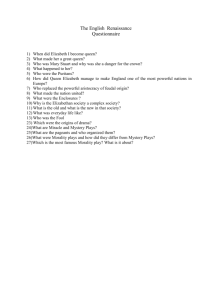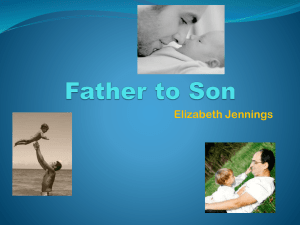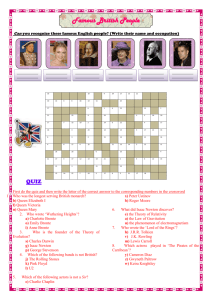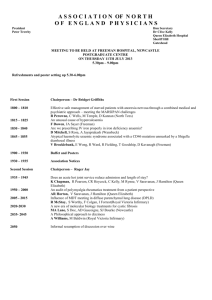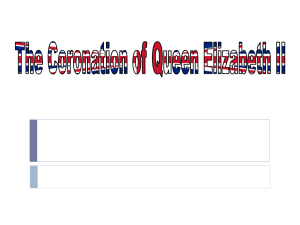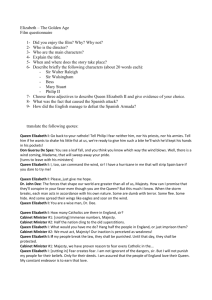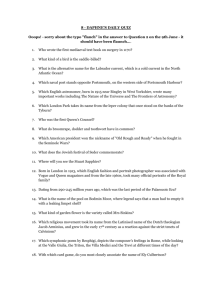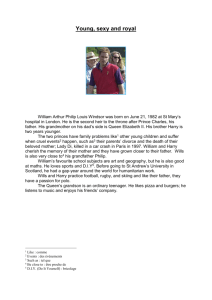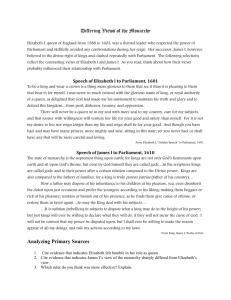Poetry Explication: Queen Elizabeth I's "Doubt of Future Foes"
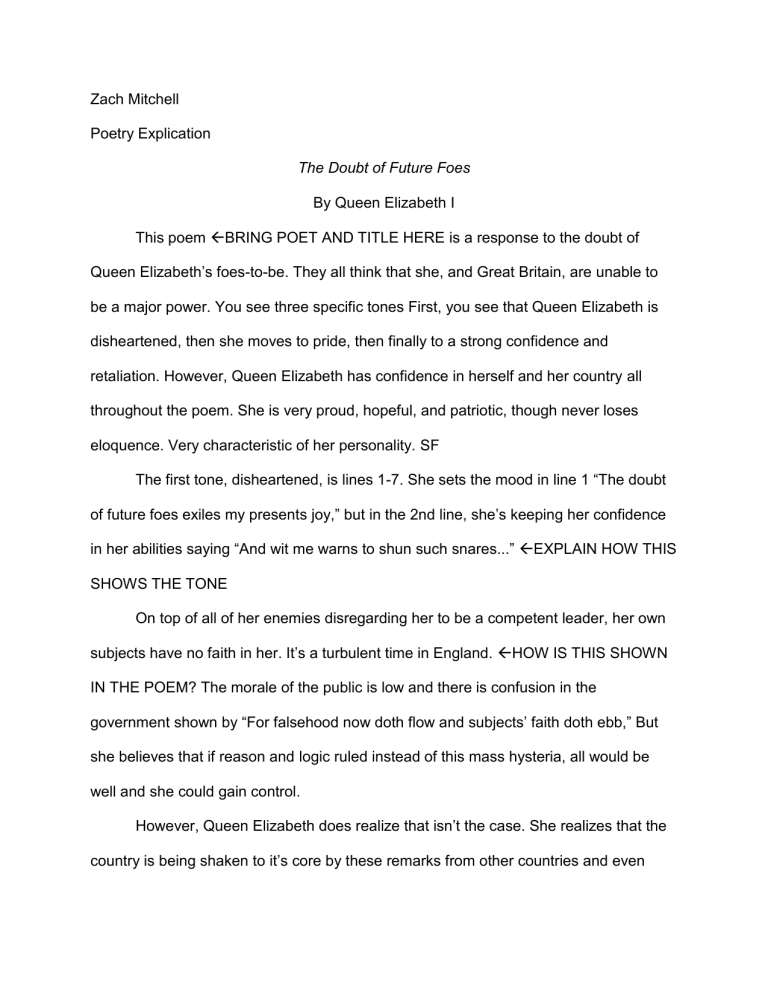
Zach Mitchell
Poetry Explication
The Doubt of Future Foes
By Queen Elizabeth I
This poem BRING POET AND TITLE HERE is a response to the doubt of
Queen Elizabeth’s foes-to-be. They all think that she, and Great Britain, are unable to be a major power. You see three specific tones First, you see that Queen Elizabeth is disheartened, then she moves to pride, then finally to a strong confidence and retaliation. However, Queen Elizabeth has confidence in herself and her country all throughout the poem. She is very proud, hopeful, and patriotic, though never loses eloquence. Very characteristic of her personality. SF
The first tone, disheartened, is lines 17. She sets the mood in line 1 “The doubt of future foes exiles my present s joy,” but in the 2nd line, she’s keeping her confidence in her abilities saying “And wit me warns to shun such snares...” EXPLAIN HOW THIS
SHOWS THE TONE
On top of all of her enemies disregarding her to be a competent leader, her own subjects have no fa ith in her. It’s a turbulent time in England. HOW IS THIS SHOWN
IN THE POEM? The morale of the public is low and there is confusion in the government shown by “For falsehood now doth flow and subjects’ faith doth ebb,” But she believes that if reason and logic ruled instead of this mass hysteria, all would be well and she could gain control.
However, Queen Elizabeth does realize that isn’t the case. She realizes that the country is being shaken to it’s core by these remarks from other countries and even
p eople within England. This is expressed in lines 6 and 7, “But clouds of joys untried do cloak aspiring minds, which turn to rain of late repent by changed course of winds.”
TIE QUOTATION INTO CLAIM
Now in line 8, she moves to a proud tone. She talks about the hope she has for her great country. Then she is basically saying that people shouldn’t pay any mind to these comments and insults.She’s saying that these people are wasting their breath if they think Queen Elizabeth can’t rule properly and lead England into prosperity. And as we all know, Queen Elizabeth was one of England’s greatest and most successful leaders.
Finally, she is retaliating. She goes to say “No foreign banished wight shat anchor in this port;” She is very serious and isn’t afraid to take action.
Having background knowledge of Queen Elizabeth, that fits her personality perfectly. Her saying things like this and just being seated on the throne not too long after this was wrote is an ambitious plan to say the least.
FOR FORMALIST POETRY
EXPLICATION, FOCUS ON THE MEANING OF THE WORDS W/O REGARD FOR
HISTORICAL CONTEXT UNLESS YOU CAN ESTABLISH FROM THE WORDS IN
THE POEM THAT SHE IS THE SPEAKER. However, she’s willing to back up this claim by force. She will gladly use her “rusty sword” to enforce her demands on the other country, and we know that later on, she does go to war.
ZACH: a good start. You have a solid set of claims and evidence. For revision, focus on your warrants, your explanations proving that your evidence shows what you say it shows. This is a matter of connecting the dots you already have. Also, steer clear from
historical background unless you can specifically show it is revealed in the actual words of the poem. If you can make the argument that the SPEAKER of the poem is the queen, great, but make sure to make the argument. Untimely feedback means you have more time to revise.


